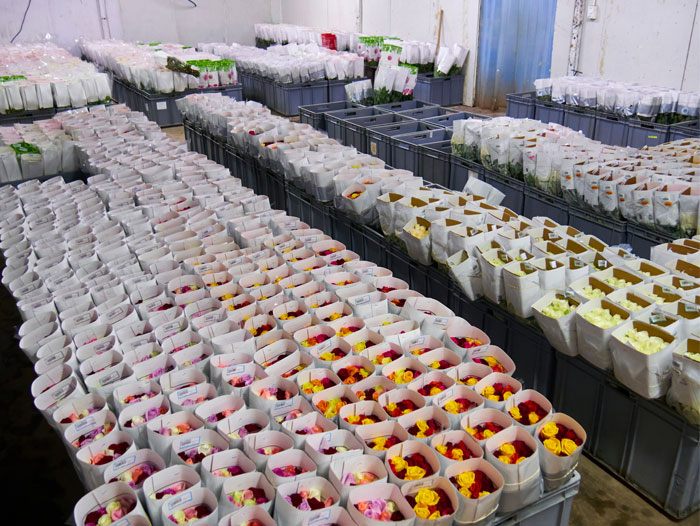Keeping Flowers Fresh: New AFE-Funded Research Exploring Alternatives to Ethylene Inhibitors
June 27, 2023 | 2 min to read

Everyone loves receiving a beautiful bouquet of fresh flowers, but making sure they stay vibrant on their way to your vase is a challenging task. A major cause for the deterioration of cut flowers is a gaseous molecule called ethylene, a plant hormone that causes flowers to wilt and fade and accelerates the drop of buds, petals, and leaves (Figure 1). In the floriculture industry, ethylene’s effects can significantly reduce the quality and longevity of cut flowers during storage and transport. AFE-funded researchers at the University of Texas at Arlington have been hard at work trying to find a way to inhibit ethylene’s adverse effects, and recent discoveries may offer promising alternatives to the methods currently in use.
Figure 1. Ethylene damage in the form of premature wilting on roses.
Current Solutions and Their Drawbacks
Two treatments are commonly used to block ethylene’s effects: 1-methylcyclopropene (1-MCP) and silver thiosulfate (STS). They are very effective, but both have their drawbacks. 1-MCP is a reactive gas that is difficult to handle and requires enclosed areas for application. STS contains heavy metals, which raises environmental and disposal concerns, especially when used in large quantities. It is also light sensitive and must be prepared just prior to use, which can be inconvenient.
1-MCP belongs to a family of compounds called cyclopropenes, which are potent ethylene inhibitors. (The parent cyclopropene is a tiny, triangular molecule made up of three carbon atoms and four hydrogen atoms.) Cyclopropenes like 1-MCP have a similar structural feature to ethylene, which allows them to bind to the ethylene receptor sites in plant cells without eliciting the ethylene response, thus preventing ethylene from exerting its effects on plant tissues. (This is called competitive inhibition.)
To read the rest of the story, please go to: American Floral Endowment
